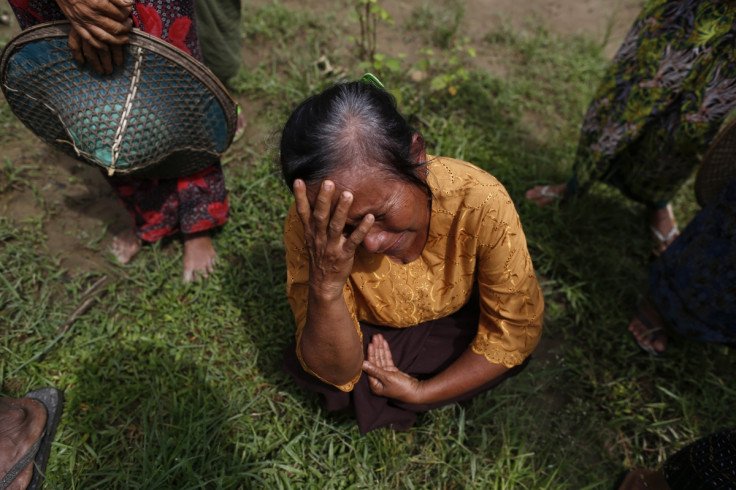Myanmar: Buddhist Authorities Order Mass Arrests of Rohingya Muslims in Rakhine State

Buddhist authorities have allegedly ordered a round-up of all male Rohingya, including children over the age of ten, in areas surrounding the Myanmar village of Du Char Yar Tan (Duchidaran) where at least 40 Muslims were killed and several hundred displaced in renewed sectarian violence.
Rights groups have confirmed that Rohingya men and boys have gone into hiding to avoid mass arrests in the Rakhine state's village.
"These arbitrary detentions broaden the scope of the human rights violations in the area and should be immediately brought to an end," said Matthew Smith, executive director of Fortify Rights.
"There needs to be accountability for this wave of horrific violence in Maungdaw Township but mass arrests of Muslim men and boys are not the way."
Du Char Yar Tan is the site of the suspected killing of a police sergeant and subsequent revenge attacks against Rohingya Muslims by state security forces. The incident took place on the night of 14 January when Rakhine authorities entered the village and started shooting people directly.
Tun Khin, human rights activist and president of the Burmese Rohingya Organisation in the UK, told IBTimes UK that access to the area is still forbidden for residents, humanitarian organisations, independent observers and the international and national media.
"The military are taking the dead bodies away from the village before the aid agencies and the international community steps in," he said. "The UN needs to go there before they clean all bodies. Why the international community stays silent?"
Myanmar's central government and Rakhine state government officials have denied that any violence took place in the Maungdaw Township and they accused Rohingya "mobs" of attacking police.
"The government should immediately provide unfettered humanitarian access to the area and grant access for national and international media," said Matthew Smith. "The authorities can't defensibly speak the language of human rights reform while sealing off the site of yet another massacre in Rakhine State."
The killing rampage against Rohingya started when a group of 23 Muslims from another township were travelling through Maungdaw with the intention of fleeing the country.
They encountered a group of Rakhine Buddhists who allegedly abducted eight of the Rohingyas. On 11 January, local Rohingya allegedly discovered a fresh grave with body parts in the area.
In the violent confrontation that followed between Buddhist residents and Rohingya villagers, a police sergeant was abducted and allegedly killed by Rohingya.
The incident prompted another operation by riot police and Buddhist residents who entered the village and brutally attacked Rohingya who had not yet fled. Muslim-owned properties in the village were looted.
The Rohingya have never been granted citizenship in Myanmar and a 1982 law excluded them from the list of officially recognised minorities.
Sectarian tension between Rakhine state's 800,000 Rohingya and their Arakanese Buddhist neighbours exploded in June 2012 after allegations that a gang of Rohingya men had raped an Arakanese woman. The Muslims were lynched in response, sparking days of rioting.
© Copyright IBTimes 2024. All rights reserved.






